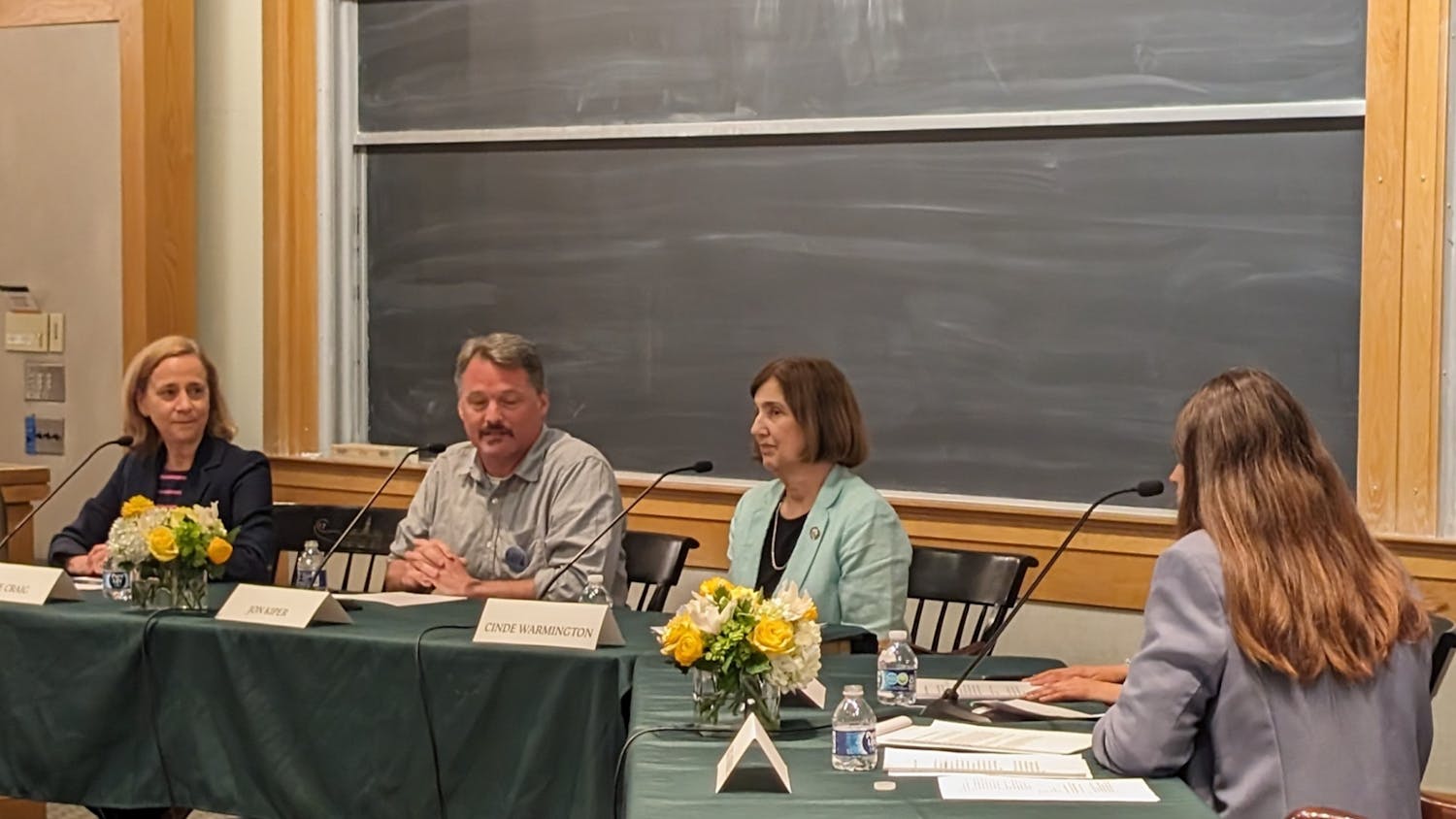One of the youngest fadistas in history to be nominated for the Dutch Edison Award, Moura, set to take the stage tonight in Spaulding Auditorium, is one of the most prestigious musicians in Portugal. Moura has collaborated with the Rolling Stones, Gilberto Gil and Prince, and in 2011 won a Portuguese Golden Globe Award, reached the top of the charts of both Billboard and Amazon.
The songs on Moura's latest album, "Desfado," were composed by traditional fado artists in Portuguese Moura penned one. Grammy-award winning producer Larry Klein helped lead the work.
"Working with Larry on the album has been great," Moura said. "It's really amazing because he came to Portugal before the album's production, and I showed him all of the Portuguese music and the Portuguese instruments. And then when we started producing in Los Angeles, it was a completely different experience."
"Desfado" has received rave reviews from critics, with many praising Moura's quiet passion and soul.
"This album was really an adventure to us, because we do these things with almost a religious style of work," Moura said. "It really is a big adventure."
Hopkins Center programming director Margaret Lawrence wanted to showcase new music and chose Moura's performance to give students an experience beyond the typical bubble, she said.
"Fado, which is the tradition that Ana Moura represents, is a really important historical European genre that comes from a very specific time and place," Lawrence said. "Ana is one of the most important fado artists touring today. I think she's really going to transform Spaulding into an intimate venue, where you can almost imagine you're in this little club in Lisbon."
The main types of fado are those from Lisbon and Coimbra, and each is accompanied with a unique guitar. The more popular Lisbon fado often narrates tales, while that of Coimbra takes its roots from traditional folk songs.
"Interestingly, the proximity of this new generation of Portuguese fado' with Brazilian and African musical traditions suggest paths, old and new, to understanding the relationship between Lusophone countries," Spanish and Portuguese professor Rodolfo Franconi said in an email.
Lawrence said she is excited to bring fado to Dartmouth.
"Behind fado singing, there's this moment when a singer's voice catches with emotion," Lawrence said. "People tell me that sometimes they just want to close their eyes and it becomes even more intimate, as if the person is only singing to you. And it doesn't even matter if you know what the lyrics are. It's just a very intimate expression."
Moura will perform tonight at 7 p.m. in Spaulding, followed by an informal discussion.




